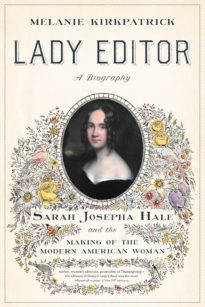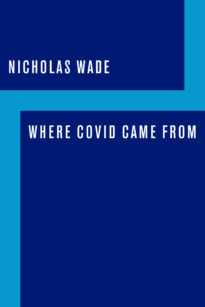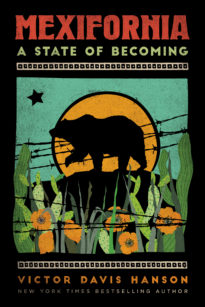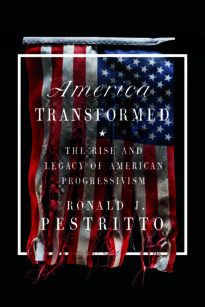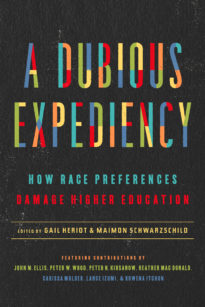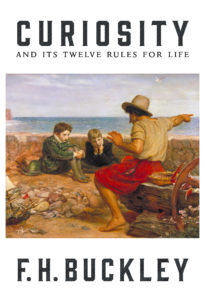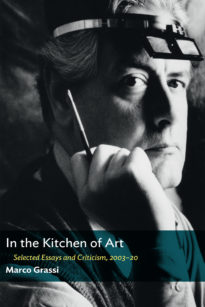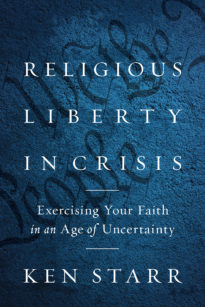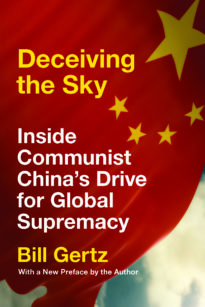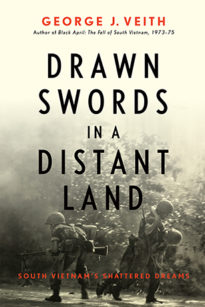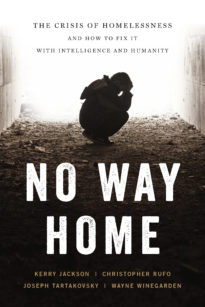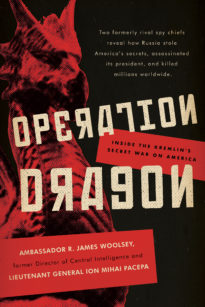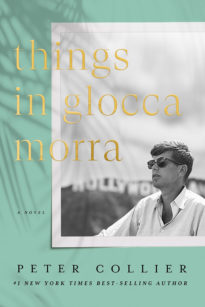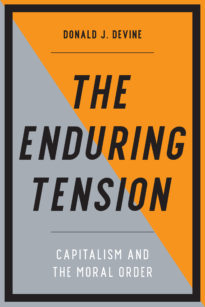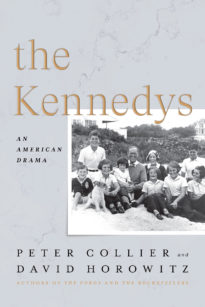Free shipping on all orders over $40
New Releases
Lady Editor Sarah Josepha Hale and the Making of the Modern American Woman
For half a century Sarah Josepha Hale was the most influential woman in America. As editor of Godey’s Lady’s Book, Hale was the leading cultural arbiter for the growing nation. Women (and many men) turned to her for advice on what to read, what to cook, how to behave, and—most important—what to think. Twenty years before the declaration of women’s rights in Seneca Falls, NY, Sarah Josepha Hale used her powerful pen to promote women’s right to an education, to work, and to manage their own money.
Where COVID Came From
Did the Covid virus jump naturally from an animal species to humans, or did it escape from a laboratory experiment? In this essay, science writer Nicholas Wade explores the two scenarios and argues that, on present evidence, lab escape is the more likely explanation.
Mexifornia A State of Becoming
Nearly twenty years after the first publication of Mexifornia, Hanson offers an update on the continuing tragedy of illegal immigration. At the same time, he remains hopeful that our traditions of integration, assimilation, and intermarriage may yet remedy a predicament created by politicians and ideologues.
America Transformed The Rise and Legacy of American Progressivism
New thinking about the principles of government —and open hostility to the American Constitution — led to a host of concrete changes in American political institutions. Our government today reflects these original Progressive innovations, even if they are often unrecognized as such because they have become ingrained in American political culture. This book shows the nature of these changes, both in principles and in the nuts and bolts of governing.
A Dubious Expediency How Race Preferences Damage Higher Education
Is higher education on the right road? The authors of these eight essays are hardly the first to think not.
In 1976, in the now-famous Bakke case, the California Supreme Court had to decide whether what some view as the “good kind” of race discrimination—preferential treatment for minorities in college and university admissions—violates the Constitution.
Curiosity And Its Twelve Rules for Life
Curiosity is the instinct that prompts us to act, and a book about curiosity should tell us how to live. This is the first to do so, with its twelve rules for life.
In the Kitchen of Art Selected Essays and Criticism, 2003-20
Deeply learned, and with a style all his own, Marco Grassi is as at home with Duccio as he is with Norton Simon; Bronzino as with Bernard Berenson; a painting on his desk as with a Last Supper in Florence’s Basilica of Santa Croce. In the Kitchen of Art selects the art conservator and dealer’s most memorable contributions to The New Criterion over a span of nearly twenty years.
Religious Liberty in Crisis Exercising Your Faith in an Age of Uncertainty
What was unfathomable in the first two decades of the twenty-first century has become a reality. Religious liberty, both in the United States and across the world, is in crisis. Though this crisis was not created by a global pandemic, it has been exposed by it. Simply put, the government is far more powerful than any of us imagined.
Deceiving the Sky Inside Communist China's Drive for Global Supremacy
The United States’ approach to China since the communist regime in Beijing began a period of reform and opening in the 1980s was based on a promise that trade and engagement would lead to a peaceful, democratic Chinese state. Forty years later, it is obvious that this approach has utterly failed. Instead of a benign People’s Republic of China, the result is a new evil empire more dangerous than the old Soviet Union.
Drawn Swords in a Distant Land South Vietnam's Shattered Dreams
Drawn Swords in a Distant Land showcases the fascinating, untold story of the rise and fall of the Republic of Vietnam. Putting aside outdated ideological debates, it offers the first in-depth review of the South Vietnamese successes and failures in building and defending their state.
No Way Home The Crisis of Homelessness and How to Fix It with Intelligence and Humanity
In San Diego, not far from the gates of the fantasy world at Disneyland, tent cities lining the freeways remind us of an ugly reality. Homeless individuals are slowing rail traffic between Sacramento and the Bay Area and swarming subway trains in Los Angeles in search of a place to sleep when they’re not languishing on Skid Row.
Operation Dragon Inside the Kremlin's Secret War on America
Former director of Central Intelligence R. James Woolsey and former Romanian acting spy chief Lt. General Ion Mihai Pacepa, who was granted political asylum in the U.S. in 1978, describe why Russia remains an extremely dangerous force in the world, and they finally and definitively put to rest the question of who killed President Kennedy on November 22, 1963.
Things in Glocca Morra
“What’s the point of being Irish anyway if you don’t think the world will break your heart?” asks Jack Kennedy. He is spellbound by a song about Ireland’s neverland of dreams: “How Are Things in Glocca Morra?”
No one better knew the real JFK’s dreams and passions than Lem Billings, a prep-school roommate who made himself “sidekick everlasting.” The late Peter Collier had the great fortune to obtain oral histories from Billings himself, and they became the basis for a vivid biographical novel in Lem’s voice.
The Enduring Tension Capitalism and the Moral Order
Why does history record prosperity for the mass of ordinary people only within Western civilization and in the context of free markets? Donald Devine’s exploration of the enduring tension between capitalism and the moral order is the best answer to this question since Adam Smith’s.
The Kennedys An American Drama
The Kennedys may well be the most photographed, written about, talked about, admired, hated, and controversial family in American history. But for all the words and pictures, the real story was not told until Peter Collier and David Horowitz spent years researching archives and interviewing both family members and hundreds of people close to the Kennedys.
